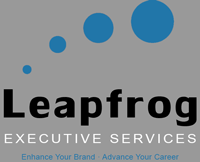The Ruse of Experience
Category : 2018
The growth of technology and social media has generated new meanings for familiar words. Viral now refers to popularity, not an illness. A ping is an action, not a noise. Following means to subscribe, not to pursue. Experience has expanded to mean you achieved something-not that you were there.
From a CEO trying to secure the trust of a board to an executive moving to a C-level role to companies working to gain a position in a competitive market, leveraging the word “experience” as a differentiator is wasted energy. Experience is about participation, observation, perception, encountering something, and practice that results in superior knowledge or mastery. In short, whether its an executive or a company, experience simply means you were there. You participated. You interacted with a situation or event. You maybe even learned something.
Companies can serve their marketplace for the same amount of time with very different results. A quick look at Fortune 500 companies shows that a decade committed to a task can yield widely differing results.
| Company | Years in Business | Fortune Rank 2007 | Fortune Rank 2017 |
| Texas Instruments | 66 | 185 | 206 |
| JC Penny | 115 | 116 | 221 |
| Wal Mart | 55 | 1 | 1 |
| Weyerhauser | 118 | 105 | 341 |
| Apple | 41 | 123 | 3 |
A look at top executives reveals the same range of outcomes. During Jeff Immelt’s tenure at General Electric, the stock price slipped 25%. Since Facebook became public, Mark Zuckerberg has led growth from $153 million to $40 billion. In ten years, Indra Nooyi has grown PepsiCo from $39 billion to $63 billion, while Ginni Rometty has watched IBM shrink from $98 billion in 2007 to $79 billion in 2017. Obviously, length of time on a road does not equate to distance traveled-or results achieved.
Selling experience alone easily becomes a ruse. If you don’t have a story to tell, don’t try to pretend one exists. Without quantified results, your ability to distinguish yourself from competitors is diminished.
Your experience doesn’t differentiate. Your client’s experience creates market differentiation. What consumers tell about how you helped them, how your product or service impacted their lives-that sells. When a board or other execs talk about your impact in an organization, that creates more credibility than talking about your number of years of experience.
Strong brands sell what people buy-and people buy results
